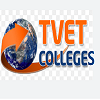Difference Between A University And A TVET College In Terms Of What Each Offers
Difference Between A University And A TVET College In Terms Of What Each Offers
A university is a higher education institution that offers academic programmes and awards degrees in a variety of subjects of study. It is usually a big and diversified institution with undergraduate, graduate, and doctorate programmes. Universities are sometimes made up of many faculties or colleges, each specialising in a different area of study, such as arts and humanities, sciences, engineering, business, medical, law, social sciences, and so on, However, A TVET (Technical and Vocational Education and Training) college is an educational institution that focuses in offering technical and vocational training to prepare students for certain crafts and industries. TVET institutions prepare students for the workforce by providing hands-on training in relevant subjects.
READ: What Is An FET College 2024-2025
Difference Between A University And A TVET College In Terms Of What Each Offers
Universities and TVET colleges differ in terms of the sort of education they give, their focus, and the certificates they grant. Here are the primary differences:
Programs:
- Universities:Universities provide a diverse range of academic programmes, including undergraduate and postgraduate degrees in subjects such as the arts, sciences, engineering, social sciences, business, medicine, law, and so on. They are concerned with theoretical knowledge, research, and critical thinking abilities. Universities are increasingly focused on educating students for professional vocations and higher academic studies.
- TVET Colleges: TVET colleges, on the other hand, offer vocational and technical education and training in specific trades and industries. They focus on practical skills development and hands-on training, preparing students for direct entry into the job market or enhancing their employability in specialized fields. TVET colleges typically offer certificates, diplomas, and other vocational qualifications.
Period of Study:
- Universities: University degree programs typically take longer to complete, ranging from three to four years for undergraduate degrees and one to several years for postgraduate degrees.
- TVET Colleges: TVET programs are generally shorter in duration and can vary from a few months to two years, depending on the level and complexity of the training. This allows students to enter the workforce more quickly with specialized skills.
Entry Requirements:
- Universities: Admissions into universities usually requires a high school diploma or an equivalent qualification. Additionally, many universities have competitive admission processes, and specific programs may have additional entry requirements, such as standardized test scores, interviews, or portfolios.
- TVET Colleges: TVET colleges have more accessible entry requirements. In many cases, a high school diploma or its equivalent may be sufficient to enroll in a TVET program. These colleges often cater to a broader range of students and provide opportunities for skill development and career advancement for those who may not pursue traditional academic degrees.
READ: What Is A TVET College 2024-2025
In conclusion, universities provide a greater choice of academic programmes that emphasise theoretical knowledge and research and lead to traditional academic degrees. TVET institutions, on the other hand, offer specialised vocational and technical training with an emphasis on practical skills to prepare students for immediate entrance into the labour market.
Both types of institutions serve critical roles in education and skill development, catering to students’ various career routes and interests. For more information visit the official website of your prefered TVET College.
RELATED LINKS
